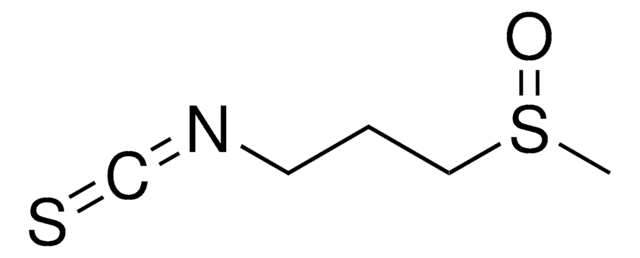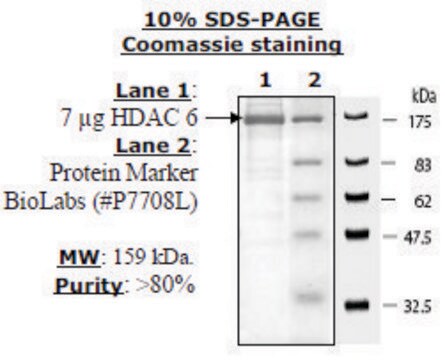SRP0110
HDAC-8 human
recombinant, expressed in baculovirus infected insect cells, ≥80% (SDS-PAGE)
Synonym(s):
CDA07, HD8, HDACL1, Histone deacetylase 8, Histone deacetylase-like 1
About This Item
Recommended Products
biological source
human
recombinant
expressed in baculovirus infected insect cells
Assay
≥80% (SDS-PAGE)
form
aqueous solution
potency
≥0.001 units/mg
mol wt
42.4 kDa
packaging
pkg of 50 μg
storage condition
avoid repeated freeze/thaw cycles
concentration
>0.02 mg/mL
NCBI accession no.
UniProt accession no.
shipped in
dry ice
storage temp.
−70°C
Gene Information
human ... HDAC8(55869)
General description
Application
Biochem/physiol Actions
Unit Definition
Physical form
Preparation Note
Storage Class Code
12 - Non Combustible Liquids
WGK
WGK 3
Flash Point(F)
Not applicable
Flash Point(C)
Not applicable
Choose from one of the most recent versions:
Certificates of Analysis (COA)
Don't see the Right Version?
If you require a particular version, you can look up a specific certificate by the Lot or Batch number.
Already Own This Product?
Find documentation for the products that you have recently purchased in the Document Library.
Articles
Epigenetic modifications are thought to occur through two key interconnected processes—DNA methylation and the covalent modification of histones.
Our team of scientists has experience in all areas of research including Life Science, Material Science, Chemical Synthesis, Chromatography, Analytical and many others.
Contact Technical Service








